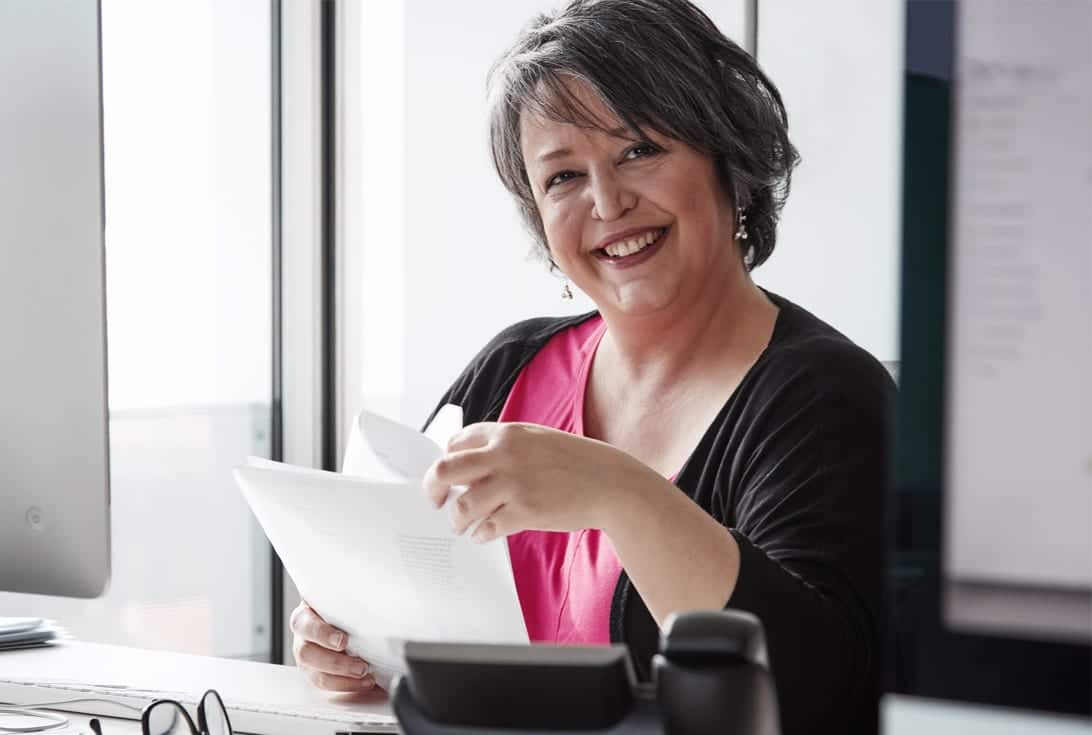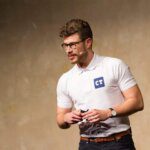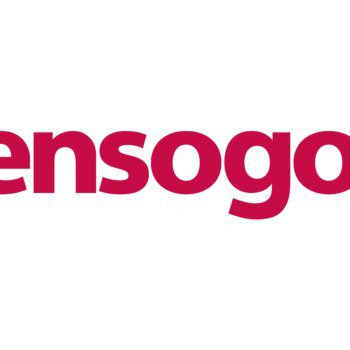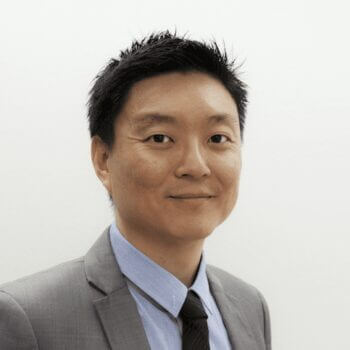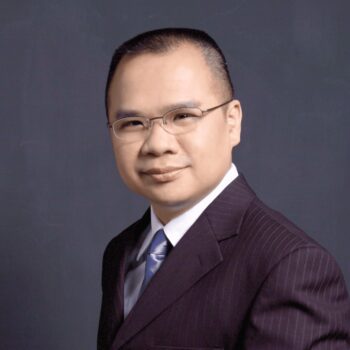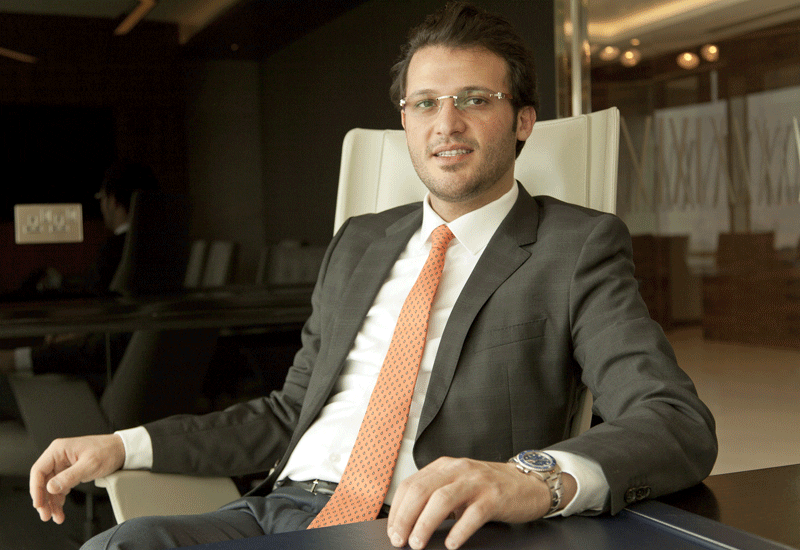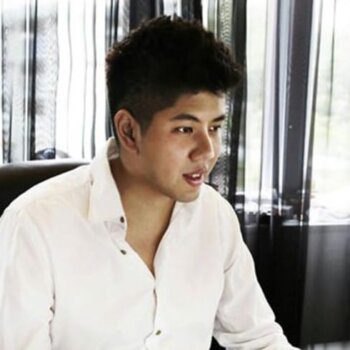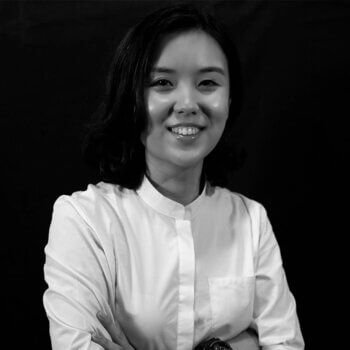Coral Puig has over 22 years of corporate careers in several different industries and comes from a strong econometrics and analytical academical background.
What’s your story?
My first job after my Master of Philosophy in Econometrics was in Research and I didn’t like it so I looked for another job and I joined the cookies division of Philip Morris. My first project was to introduce Oreo in South Europe (1994, before the Internet) and I spent 1 year flying around with what most of European distributors called ‘a box of overcooked burned cookies’. I learned that the people in a place called ‘marketing department’ had the tools to make ‘black cookies’ cool and appealing. So, I did a Marketing MBA and enjoyed +20 years of exciting corporate marketing and innovation career in leading multinational companies (Phillip Morris, Lindt Chocolates, Reckitt Benckiser, Antonio Puig…). Simon Sinek had a big impact on the way I think of business models and marketing and I decided to quit corporate to join a boutique consultancy agency. Shortly after, I became an entrepreneur and I moved to Hong Kong (2013). I also started lecturing at Hong Kong University of Science and Technology in 2017 which has provided me with a sideline job that I love.
What excites you most about your industry?
Marketing decides 85% of what we buy; from our haircut, our neighborhood, our underwear, our phones, our cocktails, our holidays.. and even the fact that I am doing this interview. We buy –and pay way more of what it costs to manufacture– things we need to get social recognition, sense of belonging, love, self-esteem, self-actualisation… Marketing helps to relieve these tensions of feeling alone, unloved and being forgotten. To forget that is the reason most of the campaigns about some tech devices, climate change, recycling, fundraising for refugees …are a failure.
What’s your connection to Asia?
I was born in Barcelona and raised between Catalonia, Switzerland and the USA, in a tri-lingual environment. I have always worked and travelled the world. I am a ‘fearless nomad’. I moved to Hong Kong 6 years ago because, in my opinion, Europe and America are walking backwards since 2008, politically, socially and economically. Asia is where ‘things are happening’ and most of the professionals I have met in Asia are more open to collaborating, to take risks and to constantly learn from each other.

Favourite city in Asia for business and why?
I like Hong Kong because of its speed, mix of cultures, its safety, the fact that you can bump into a massive snake while going to Channel for shopping and its privileged situation –the door to Greater China, so close to other South East Asia countries and emergent economies and Singapore. It is extremely bubbly and efficient at the same time, quite clean and super fun. You can collaborate with people from all over the world every day.
What’s the best piece of advice you ever received?
To meditate has been life changing for me…and ‘it is your attitude and not your aptitude that will define your altitude’. So, listen and learn, every day from everybody.
Who inspires you?
Everybody? I am addicted to TED app.
What have you just learnt recently that blew you away?
That my domestic helper, Rose, comes from a very poor family and she could not finish high-school BUT she learned to speak Cantonese watching TV in 2 years. Also, I watched a conversation between a person and an ‘empathetic AI prototype’. I witnessed a moment that may be in history books. It made a joke (and it was a funny one). I am still not sure how to explain what I saw and felt.
If you had your time again, what would you do differently?
If I say ‘nothing’ I would sound pretentious? I would have loved to learn more languages. I do believe that to speak new languages is an amazing way to grow to understand diversity and the cultural richness of the world; languages help you improve emotional intelligence when you work in a multicultural environment.
How do you unwind?
I love learning, dancing, singing when nobody is listening, going out with my friends and lose track of time. I love travelling and reading history books. In a parallel universe, I am a ballerina, a rock star, a travel blogger and an archeologist.
Favourite Asian destination for relaxation? Why?
Bali. The island is beautiful from the bottom to the top, the food is amazing, Ubud is like living in a postcard, trekking to Batur volcano at dawn, the Bali swings, to walk along Campuhan Ridge at dusk, the Balinese massage… Also, there are some very interesting co-working spaces popping up which makes the place interesting for a work-remotely-while-surfing city break.
Everyone in business should read this book:
The Art of Being Right: 38 Ways to Win an Argument (also Eristic Dialectic: The Art of Winning an Argument; 1831) by Arthur Schopenhauer …and The Experience Economy by B. Joseph Pine and James H. Gilmore.
Shameless plug for your business:
Evolving and adapting are necessary skills required for any successful business but in the pursuit of gaining market share, one crucial static is typically overlooked; one’s desire to leave a legacy. As a natural-born human instinct, the fear of being forgotten lives in everyone and the desire to be remembered is overwhelming.
The future of Business growth is about becoming authentic story MAKERS and that is what we do at The Love Comes’. It is not about having only a Vision and a Mission and a CSR report, but about Taking Action. It is not about giving money to charity or having a sustainable manufacturing process. Is about helping consumers to relief their social needs, self-esteem and self-actualisation needs by helping them to stand for and solve problems they care about through their consumption. Therefore, we co-create with Brands and Entrepreneurs new Marketing Strategies and re-imagine their Business Models that are based on “painstorming” and not only on “brainstorming” processes.
How can people connect with you?
[email protected]
Twitter handle?
@coralpuig
—
This interview is part of the ‘Callum Connect’ series of more than 500 interviews

Callum Laing is an entrepreneur and investor based in Singapore. He has previously started, built and sold half a dozen businesses and is now a Partner at Unity-Group Private Equity and Co-Founder of The Marketing Group PLC. He is the author two best selling books ‘Progressive Partnerships’ and ‘Agglomerate’.
Connect with Callum here: twitter.com/laingcallum linkedin.com/in/callumlaing Download free copies of his books here: www.callumlaing.com
